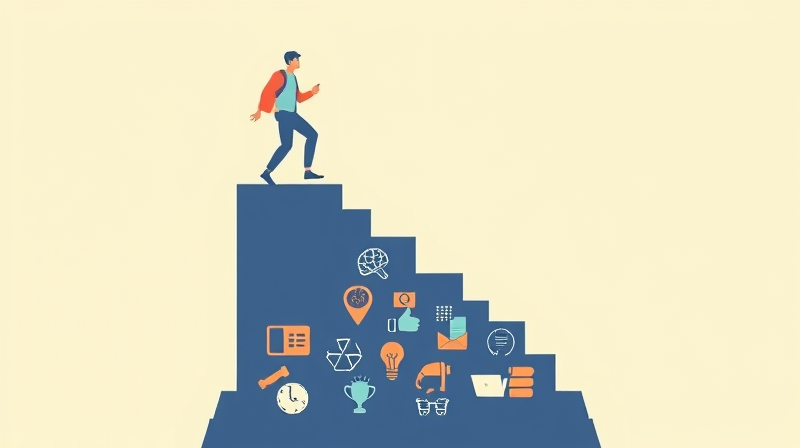Continuous success is not a product of overnight efforts but the result of deliberate, consistent actions. By focusing on small, manageable steps and celebrating every milestone, individuals and organizations can develop habits that foster growth and sustainability. In this exploration, we discuss key strategies, core habits, and mindsets that pave the road to lasting success.
Every journey begins with a single step and the belief that small actions can lead to big changes. The formation of effective habits provides a structured framework for creating a life where personal development, work productivity, and overall wellness align harmoniously. Embracing incremental changes and focusing on the process rather than merely chasing outcomes ensures that progress is consistent and rewarding.
Strategies to Develop Habits That Last
Initiating change starts with a simple approach: start small. For instance, dedicating a few minutes each day to a new activity creates a space for that behavior to blossom into a habit. Over time, these small actions become ingrained parts of a routine.
Consistency is the cornerstone of any successful habit. When actions are repeated regularly, they become automatic. Research suggests it usually takes around 60 days for a behavior to solidify into a habit.
Couple new habits with existing routines by using the concept of habit stacking. Linking a new behavior to something already established, such as pairing a short meditation session with morning coffee, helps integrate the new habit into daily life effortlessly.
Focus on one goal at a time to avoid feeling overwhelmed. Mastering one habit lays a strong foundation before adding more practices. This not only prevents burnout but also builds a reliable system where success is measured in steady progress rather than quick wins.
Instead of solely setting ambitious goals, shift your attention to the systems that support these objectives. For example, developing a daily routine for exercise and meal planning can have a far greater impact on overall health than a single, lofty target. The notion of systems over goals reminds us that the journey is just as important as the destination.
Core Habits for Lasting Achievement
Integrating the right habits into your daily routine can significantly impact your level of success. One such habit is having a defined morning routine. Whether it involves a brisk walk, quiet meditation, or thoughtful journaling, starting the day with intention sets the tone for productivity and positivity.
Lifelong learning is another habit that stands out for its long-term benefits. Engaging in continuous education through reading, online courses, or workshops keeps the mind agile and ready to conquer new challenges. This approach ensures that individuals remain adaptable in rapidly changing environments.
- Time management: Effective planning and prioritization are crucial. Tools like digital calendars or the Eisenhower Matrix center daily tasks around what truly matters.
- Self-reflection: Regularly analyzing personal performance can reveal areas for improvement. Reflective practices allow for fine-tuning of habits to align with long-term objectives.
- Health and well-being: Establishing a balanced lifestyle that includes proper sleep, nutritious food, and regular exercise makes sustaining other habits much easier.
- Positive mindset: A grateful and resilient outlook transforms setbacks into learning opportunities and fuels the continuous pursuit of success.
When setbacks occur, they should be viewed through the lens of continuous improvement. Challenges provide valuable lessons and insights that ultimately lead to better strategies and more effective habits.
Maintaining the Momentum Through Continuous Improvement
Embracing challenges with determination enhances one’s growth trajectory. An important part of this process is learning to celebrate small wins. Acknowledging even minor successes can lead to sustained motivation and increased perseverance.
It is essential to learn from failures by analyzing past mistakes. This reflective approach promotes better decision-making and facilitates lifelong learning. By celebrating progress, no matter how incremental, individuals can maintain a steady, encouraging momentum.
Structuring systems around these habits is fundamental. Tools such as habit-tracking apps or journals not only help measure consistency but also provide a visual reminder of progress, keeping the mind focused on continual improvement.
Adopting agile methods in a business setting can mirror the way personal habits are formed. Agile practices that emphasize iterative growth, flexibility, and measurable outcomes create an environment where continuous improvement is part of the culture. Businesses that leverage these principles are better positioned to adapt to ever-changing market demands.
In conclusion, building effective habits is less about dramatic changes and more about consistent, intentional improvements. By starting small, remaining consistent, and integrating practices that communicate success, anyone can set themselves up for continuous achievement. Successful individuals and organizations know that every small, purposeful action contributes to the larger picture of long-term success, and it’s never too early to start making those changes today.
Remember the importance of viewing every challenge as an opportunity for growth and maintaining a systems-oriented approach. With dedication and persistence, theHabits we cultivate today will drive the ongoing success of tomorrow.








